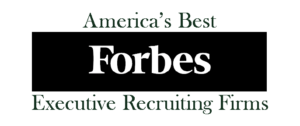As much as we prepare for the job interview, there always seems to be something that comes up that we did not expect, did not prepare for, and are at a loss for words. Usually these are the hard questions, the ones that dig deeper into our past, why we were fired, why we left a job, how we got along with our boss or co-workers or why a project went off track, or why we lost a key client.
You can be sure one of your interviewers is going to ask you at least one of these questions, so here’s how to be prepared.
- Why did you leave your last job? – I learned a lot and it was a great opportunity After two years I felt I was not learning anything new and wanted to get more challenging work. Or, you might say, the company was very small with a flat organizational structure so there was no career ladder to climb.
- Why were you fired? If you were fired because of underperforming you can say I should have asked for help when I needed it. I learned from that experience and am taking a course to gain extra skills. Or, perhaps there was a difference of opinion of how to handle the client or the board of directors decided they wanted to go in a different direction with the executive and chose someone with a stronger financial background. Or, the job turned out to be different from the original expectations and I struggled. We realized it was not a good fit.
- Or Why do you want to change jobs (for example, when you were in a higher level position before and this job has a lower title) I am no longer interested in being the boss and having that kind of responsibility or I no longer wish to deal with the board. I am happier working on programming at the computer or building a professional development program.
- How did you get along with your boss? They want to know that you are flexible enough to handle different kinds of people. You can say we got along well most of the time and even though we disagreed on some things I always respected his point of view and expressed my opinion. I learned how to ask more questions and communicate better in order to do a good job.
- What is your greatest weakness? or What was your biggest disappointment? Never answer with “I don’t have any.” The point of the question is to see how you handle adversity, how you learn from your mistakes. If the job does not require data analysis, you can use that as your weakness. If the job does require financial analysis, then you can say expository writing is not your strong point.
If you can’t think of an answer immediately, don’t panic! Stay calm, say can I get back to you later on that? Buy some time by rephrasing the question, Do you mean do I have an example of how I overcame an obstacle? Then say, I remember a time when…. Then in your follow up email, you can expand on your answer from the interview.
Amy Geffen is a Five O’Clock Club Certified Career Coach with over 30 years of experience in management, non-profits and associations. She has worked with finance, insurance and engineering professionals, as well as lawyers, editors, marketers, students, and those over 50 experiencing ageism. She has a Master’s Degree from Harvard University and a PhD from New York University.
—
GEFFEN
C A R E E R S

